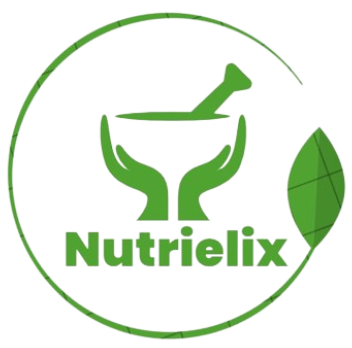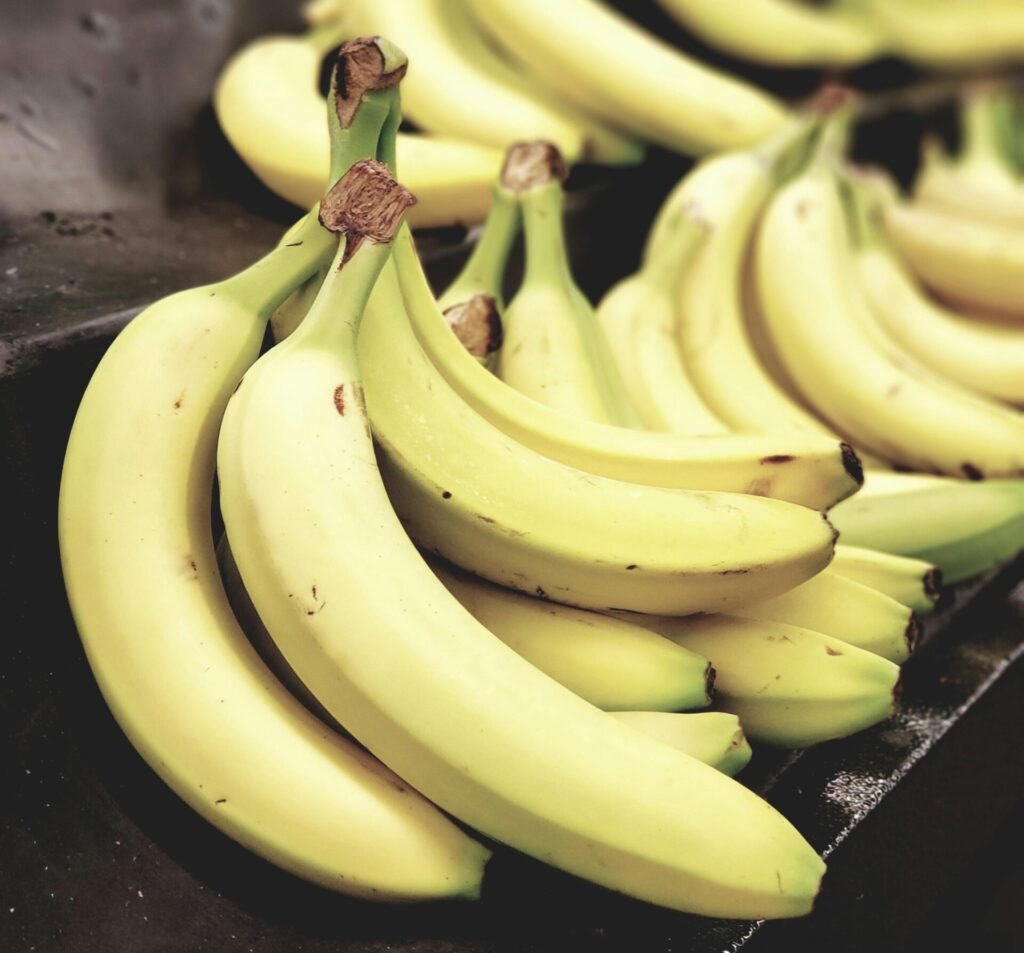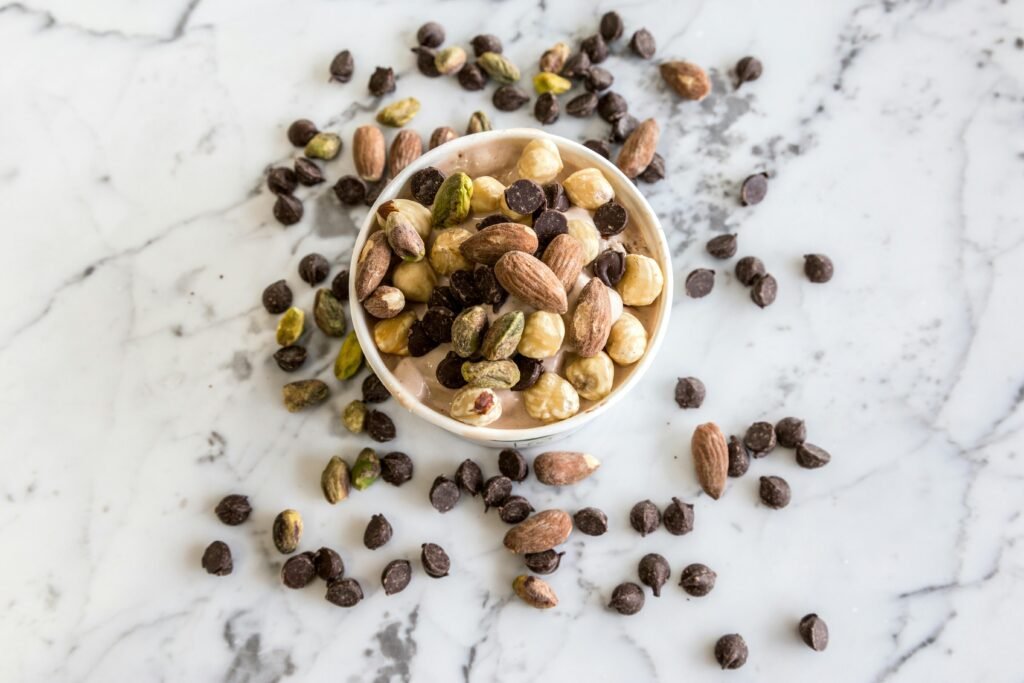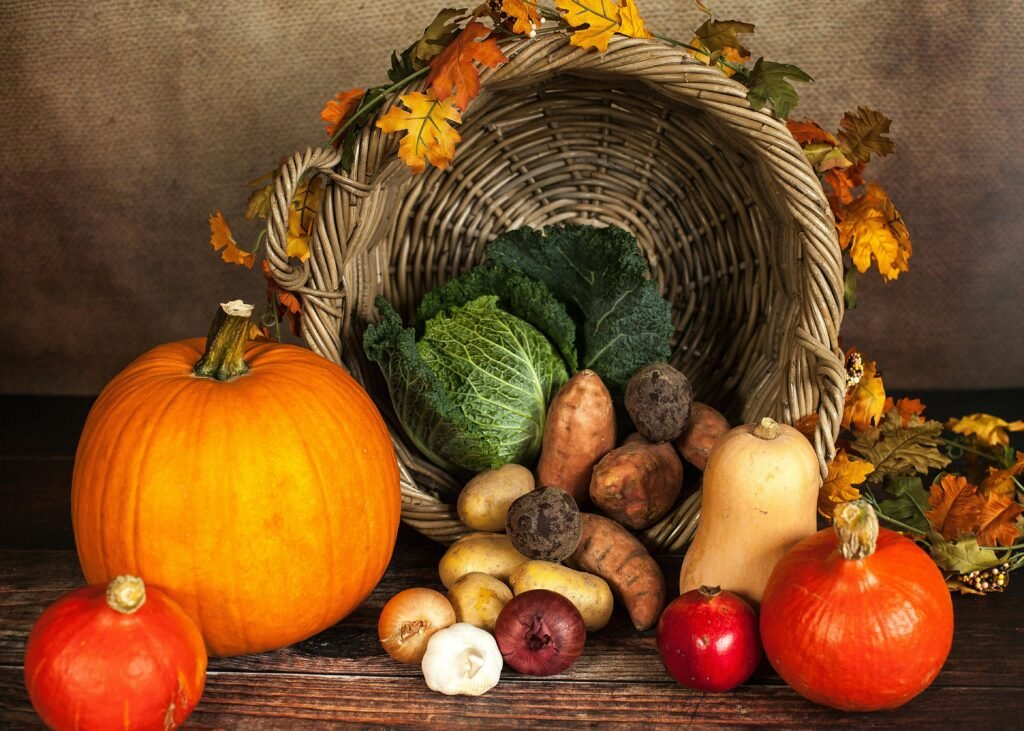Do you eat bananas? Why not? It would be best if you ate bananas daily, cause banana is the world’s first superfood with huge nutritional benefits.
In 1918, During World War I, the USA began published a publication highlighting the banana’s superfood status. Then almost after 73 years in 1991, The US government endorsed blueberries as a superfood. So, indeed banana is the world first superfood.
I personally prefer to eat bananas as a pre-workout food. Cause it boosts my energy level instantly. Banana contains high potassium, vitamin B6, vitamin C, manganese, essential minerals, high fiber and many more health benefits. Let’s jump into the world of banana.
Banana 101
A medium-sized banana (about 100 grams) is a low-calorie fruit brimming with nutrients. It contains approximately 89 calories and is composed of about 75% water. This makes bananas a hydrating choice, especially in hot climates or after physical activity. The carbohydrate content is about 22.8 grams, primarily sugars in ripe bananas and starch in unripe ones. With 2.6 grams of fiber, bananas contribute to daily intake requirements, aiding in digestive health.
Bananas are a good source of several vitamins and minerals, particularly potassium, vitamin B6, and vitamin C. Potassium is crucial for maintaining healthy blood pressure and heart function. Vitamin B6 plays a vital role in metabolism and brain health, while vitamin C is essential for immune function and skin health.
Macronutrients:
- Carbohydrates: About 22.8g per 100g, mainly as starch in unripe bananas and sugars in ripe bananas.
- Sugars: Ripe bananas have 12.2g of sugar per 100g, including sucrose, fructose, and glucose.
- Fiber: Provides around 2.6g per 100g, which includes resistant starch and pectin.
- Proteins: A moderate amount, with 1.1g per 100g.
- Fats: Very low, with 0.3g per 100g, which includes saturated, monounsaturated, and polyunsaturated fats.
Micronutrients:
- Potassium: High in potassium, with 290mg per 81g serving, which is essential for heart health and fluid balance.
- Vitamin B6: Provides about 0.3mg per 81g serving, important for brain health and metabolism.
- Vitamin C: Contains about 7mg per 81g serving, which is important for immune function and skin health.
- Magnesium: Contains 21.9mg per 81g serving, which plays a role in over 300 enzyme reactions in the body.
- Iron: A small amount, with 0.2mg per 81g serving, essential for blood production.
- Calcium: Provides 4.1mg per 81g serving, necessary for bone health.
- Vitamin A: Contains 51.8amu per 81g serving, important for vision and immune function.
Bananas also contain other vitamins and minerals in smaller amounts, such as manganese, copper, vitamin B5 (pantothenic acid), folate, niacin (B3), thiamin (B1), choline, vitamin E, vitamin K1, biotin (B7), phosphorus, selenium, zinc, and calcium.
Remember, the nutritional content can vary slightly based on the size of the banana and its ripeness. Unripe (green) bananas have more resistant starch, which has different health benefits compared to ripe bananas, which have higher sugar content.
Health Benefits
Bananas are a powerhouse of nutrients that can have various positive effects on your health. Here’s how they can be beneficial:
Aiding Digestion with Fiber: Bananas are an excellent source of dietary fiber, which is essential for maintaining healthy digestion. The fiber in bananas helps to regulate bowel movements, prevent constipation, and support overall gut health. The resistant starch in unripe bananas acts as a prebiotic, feeding the beneficial bacteria in your gut, which is crucial for a healthy digestive system.
Blood Sugar Levels and Glycemic Index: Despite their sweetness, bananas have a relatively low glycemic index (GI), which means they have a modest impact on blood sugar levels. The GI of bananas can range from 30-75, depending on their ripeness, with most varieties falling below 50. This low GI is attributed to their fiber content, particularly the pectin and resistant starch, which slow down the digestion and absorption of sugar, preventing large spikes in blood sugar levels.
Potassium for Heart Health: Potassium is vital for heart health, and bananas are rich in this mineral. Potassium helps to lower blood pressure by counteracting the effects of sodium and easing tension in the blood vessel walls. It also plays a role in every heartbeat, ensuring that your heart functions properly. A diet high in potassium can reduce the risk of stroke and has been associated with lower blood pressure levels.
Vitamin B6 and Vitamin C: Bananas are high in vitamin B6, which is involved in over 100 enzymatic reactions in the body, including metabolism and brain development during pregnancy. It also plays a crucial role in immune function and the production of neurotransmitters. Vitamin C, another nutrient found in bananas, is an antioxidant that supports the immune system, aids in the absorption of iron, and promotes healthy skin.
Incorporating bananas into your diet can contribute to these health benefits, making them a valuable addition to a balanced and nutritious diet. Remember to enjoy bananas as part of a varied diet to maximize their health advantages.
Incorporating Bananas into Diet/Meals and Snacks
Smoothies: Blend bananas with other fruits, milk or yogurt, and a sweetener of your choice for a nutritious smoothie.
Baked Goods: Use mashed bananas to add moisture and sweetness to muffins, breads, and pancakes.
Snack: Simply peel and eat, or slice bananas onto cereal or oatmeal for a quick snack.
Desserts: Create healthy desserts like banana ice cream by freezing and blending bananas.
Versatility in Recipes:
Savory Dishes: Experiment with bananas in savory dishes like banana curry or stir-fry.
Frozen Treats: Freeze banana slices and dip them in dark chocolate for a sweet, frozen treat.
Banana Chips: Bake banana slices to create crunchy banana chips.
Tips for Selecting and Storing Bananas:
Selecting: Choose bananas based on when you plan to eat them; slightly green for later use, yellow for immediate consumption.
Storing: Keep bananas at room temperature, away from direct sunlight, and separate from other fruits to slow down ripening. Wrap the stems in plastic wrap or foil to further delay ripening.
Conclusion
Bananas are a nutrient-dense fruit that offers a multitude of health benefits. They are rich in macronutrients and packed with essential micronutrients. The fiber content, including resistant starch in unripe bananas, aids in maintaining a healthy digestive tract and preventing constipation. The low glycemic index of bananas makes them suitable for those monitoring their blood sugar levels, as they slowly release sugar into the bloodstream. Potassium in bananas is crucial for heart function and blood pressure regulation, helping to reduce the risk of cardiovascular diseases. Vitamins B6 and C play significant roles in supporting the immune system and ensuring overall well-being.
Including bananas in your diet can be both enjoyable and beneficial. They can be eaten on their own, added to smoothies, used in baking, or incorporated into savory dishes. With their natural sweetness and health-promoting properties, bananas are a great choice for anyone looking to maintain a balanced and healthy diet. Enjoy bananas as part of your daily fruit intake to take advantage of their nutritional value and contribute to your overall health.



